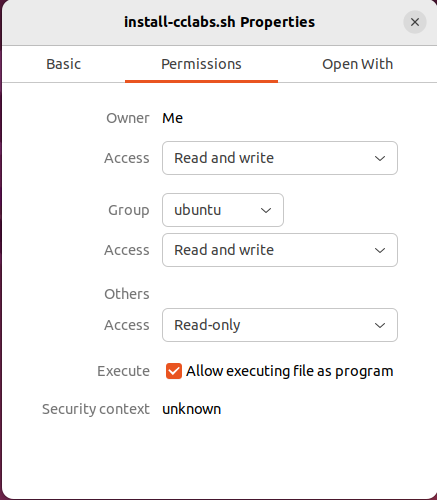![[Dennis Ritchie]](DennisRitchie_cartoon.png)
![[Dennis Ritchie]](DennisRitchie_cartoon.png)
This page provides the files associated with the Unix Crash Course. The course used to be part of the curriculum of the AMC Graduate School (now: AmsterdamUMC Doctoral School). The course was a two-day course for PhD candidates to familiarize them in using Unix (or Linux) for research purposes. The first day, most of which was theory, is occasionally still presented in other settings. This page provides support files for such occasions.
The Unix Crash Course introduces the concepts of the Unix operating system with an emphasis on using the (Bourne) shell. The subjects that are touched upon are:The syllabus and exercise solutions are made available under the GNU Free Documentation License. We also provide shell scripts to create the environments for the labs and exercises, which can be executed on any non-minimal GNU/Linux system. Those who do not have a GNU/Linux system available are advised to download an ISO image for the Ubuntu Linux Live DVD and write that (including persistence) to a USB pen drive. Instructions follow below.
The syllabus is available in
PDF format or in an
OpenDocument format. The latter can be used in
LibreOffice, a free Office suite
for multiple operating systems.
Appendix C of the document contains a few exercises. A document with possible answers
can be found here in PDF format or
here in OpenDocument format.
The slides of the accompanying presentation can be downloaded in a handout format
as a PDF file.
If you don't have a GNU/Linux system available to try the labs or exercises, you are advised to download a DVD-Rom image of the latest release of Ubuntu Linux and writing it to a USB pen drive. You can freely download an Ubuntu DVD from ubuntu.com and if you're on a Windows system you can use the Rufus application to write it to a pen drive. You need local administrator access to run the application. Booting from such a pen drive enables you to safely run Ubuntu Linux without installing anything on your own PC. For your convenience, a portable executable version of Rufus is provided here (or get it from the original download page.
If you create a pen drive, you can choose to add a special partition on it to have persistence of modified files between boots of the Ubuntu stick. Rufus has an option to enable this.
![[Rufus]](rufus.png)
After selecting the downloaded ISO file, Rufus recognizes this and provides the option to add a "Persistent partition". Either provide the size or use the slider to the left of it. Click "START" and the pen drive will be generated.
To run the labs or exercises from the USB stick, boot your system from it, start the Firefox browser and visit this web page. Download the install-cclabs.sh script and save it locally, preferably on the Desktop. The script should be made executable first (caveat: read the warning on executing downloaded content below), so right click on the downloaded file, click on "Properties" and on the "Permissions" tab. Toggle the "Allow executing file as program" option and exit the dialog. With the next right click of the file you get the option to run it as a program.

After successfully executing the script a message is displayed and the script is deleted. The setup_labs.sh and exercises.sh scripts are now readily available.
Lastly, downloading (executable) content from the internet is often tricky.
The text file SHA256SUM contains a
cryptographically secure checksum
of the files provided on this page. On Windows, you can use the Powershell command:
CertUtil.exe -hashfile downloaded_file SHA256
The hash value that is generated can be compared to the one present in the
SHA256SUM file
for the relevant file. On Linux or MacOS you can use the
"sha256sum downloaded_file" command in a
terminal to calculate the hash value.
The SHA256SUM file itself is digitally signed with the PGP key of the author of this page. The public key to verify the signature can be downloaded from a public key server. To verify the digital signature on Windows you either need to install the Windows SDK as described in this blog page or install GnuPG for Windows. On Linux and MacOS, GnuPG is (likely) already installed so you just issue the command "gpg --verify SHA256SUM". If the afore mentioned public key is not present on your system, you can fetch it with "gpg --keyserver keyserver.ubuntu.com --recv-keys 0xd1f8ffb9f7a0f7a0".
Here's a list of all the files provided on this page: